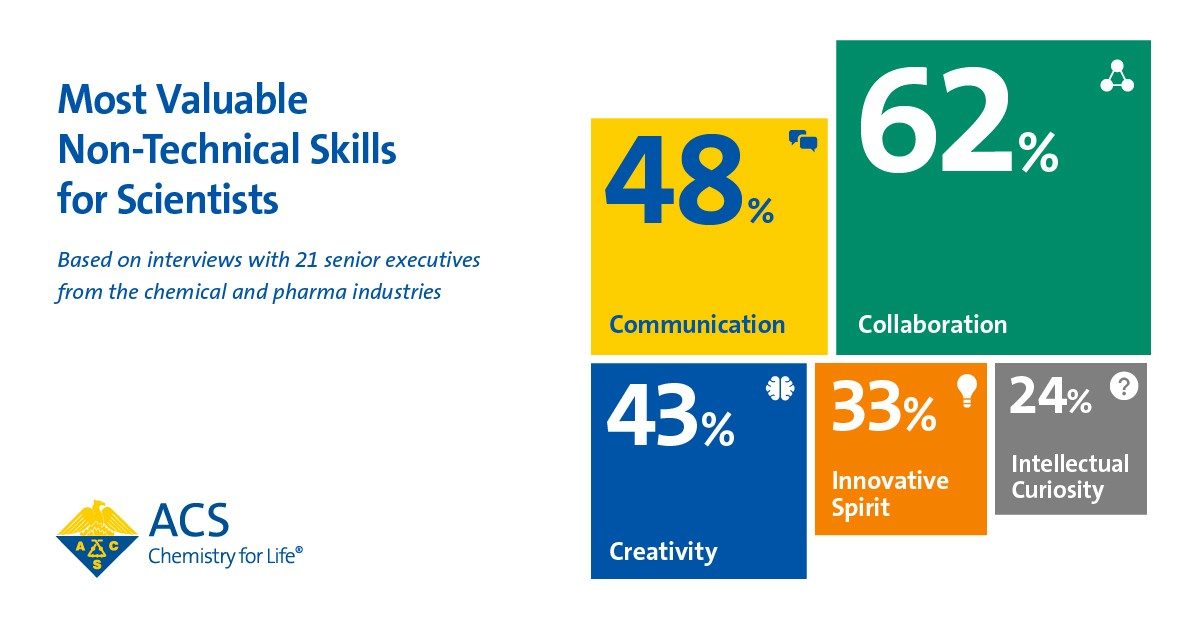
John Banovetz, Senior Vice President, Research and Development and CTO, 3M (April 9, 2019)
"At 3M, we highly value the ability to collaborate and work on a cross-functional team. This is a key component of our innovation model as inventions and technical advances rarely come from a single individual. The diversity of thought and additive power of teams helps creative new and differentiated solutions for our customers."
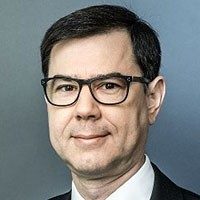
Serban Cantacuzene, VP R&D Americas, Air Liquide, Inc. (October 10, 2019)
"I value their creativity, their out-of-the box thinking, their skills to communicate well internally and externally, their team working spirit, as well as their capacity to constantly adapt to new topics and environments. Last but not least, I should mention the customer and patient focus, that drives everyone’s passion at Air Liquide and fuels our engagement."
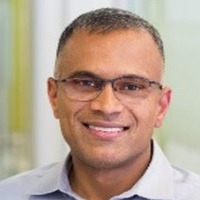
Vikram Gopal, Sr. Vice President, Technology, Ascend Performance Materials (June 20, 2019)
"At Ascend, we believe collaboration and open feedback drive innovation. We expect everyone, not just our scientists, to work within and across teams to understand the full scope of problems and develop sound, sustainable solutions. Innovation involves failure, especially when you are pushing technology to its edge. It is critical for team members to demonstrate humility for what we know and respect critical feedback."

Peter Eckes, President of BASF Bioscience Research (September 12, 2019)
"Every innovation has a disruptive component. This requires change, which makes successful innovation so challenging. In this context I see two skills as very helpful: Resilience and the ability to inspire others for a new idea."

Patricia Hubbard, Senior Vice President and CTO, Cabot Corporation (August 15, 2019)
"There are two non-technical skills that are extremely valuable for any chemist working at Cabot or in the industry. The first is critical thinking, and the second is good communication. As chemists progress in their careers, their roles often require that they are able to influence both technical and non-technical audiences from inside and outside of their organizations and for me, critical thinking and good communication have been key to building influence.
These 'softer skills' come naturally to some, but all employees can continue to improve them over their careers. At Cabot, we are dedicated to creating a learning culture and provide a variety of training opportunities for employees at various levels in their careers. In addition, what I find often more important is the individualized coaching many receive from our own internal leaders, and leadership development specialists, who have expertise working with technical professionals."
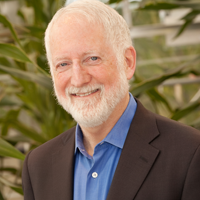
Neal Gutterson, Senior Vice President and CTO, Corteva Agriscience™ (January 16, 2020)
"For starters, emotional intelligence. It’s critical. The work we’re entrusted with is centered on collaboration and co-creation, and that requires a keen understanding of how to work with people and inspire, engage and build networks of trust.
Closely related to that, I think, is having a strong sense of intellectual curiosity—that innate drive to look for better ways to do things for farmers, consumers and society at large.
That tends to go hand-in-hand with another trait I value in people, which is passion. Passion for purpose, for transforming agriculture and for delighting our customers.
Today we’ve also got to be digitally savvy, and as comfortable with using digital computational tools as we are with algebra. Digital literacy is foundational."

Marcus Remmers, CTO, DSM (December 12, 2019)
"I appreciate scientists who show an entrepreneurial spirit: speaking up, taking calculated risks and initiative, and having a sense of urgency. That’s why I’m pleased that at DSM we develop these skills through specific programs.
Also, self-reflection is very important: we want people to take time to reflect on what has worked well for them and others, how they can do better, and what they can learn. Trying new things is part of this – I like the Pippi Longstocking quote 'I have never done it, so I will probably be good at it.'
Finally, I value storytelling. Trust in institutions and government is at an all-time low: we can’t assume any longer that people will automatically accept scientific evidence. We need to learn to discuss our solutions in a way that nonscientists can understand and appreciate. To address this need, we offer storytelling workshops for our R&D community."

Alexa Dembek, Chief Technology and Sustainability Officer, DuPont (November 7, 2019)
"I know every CTO would say this, but our scientists are about the most innovative and driven group of professionals you would ever come across. I am continually inspired by their dedication and commitment to be on the leading edge of solutions for our customers and society.
That said, by the time I get to interview candidates for our most critical positions in the company, I already assume they’re smart. That’s a given. What I look for then is the quality of thought they exhibit, outside of a laboratory environment. What is her strategic perspective to problem solving? Is she a good communicator and can she lead teams effectively? I learn a lot by the quality of people’s questions. Curious people ask great questions and you must be continually curious to succeed at DuPont. And you also need to collaborate across diverse teams to get to the best solutions."

Kathy Shelton, VP & CTO, FMC Corporation (August 1, 2019)
"Two critical skills that every new employee needs to be successful are the ability to effectively communicate to non-technical audiences and strong business acumen. These skills are new to our scientists and integral to advocating for new ideas, getting the resources they need, and building business relationships. As an ag sciences company, the partnership between R&D and the business is vital to achieving company objectives.
We try to help our scientists understand the business environment through special projects that get them out of the lab and working with colleagues in the business as well as some traditional, classroom-based learning."
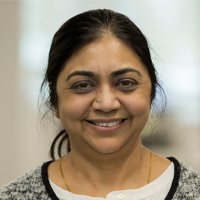
Jyoti Seth, VP of Technology, GCP Applied Technologies (October 24, 2019)
"Scientists’ creativity is very valuable to the company. Scientists need to combine that with business acumen; practicality; thinking through the commercial process, from bench scale to large scale; speed and collaboration. The open mindedness of the scientist is especially valuable so that they can use their available knowledge and resources to move the project forward. Thinking about the team over individual contributions is also highly valued."

Wendy Young, Senior Vice President of Small Molecule Drug Discovery, Genentech (April 23, 2019)
"It takes a strong team of individual, highly talented scientists working together to develop a new innovative medicine. In those individual scientists, we value a wide variety of non-technical skills: excellent communicators, good listeners, great collaborators, risk takers, motivators, truth seekers – and, most importantly, a clear passion for helping patients."
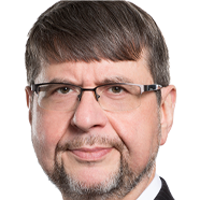
Gerard Baillely, VP, R&D Corporate Functions for P&G Co (August 29, 2019)
"Let us try a theme and variations on the letter C, shall we? I look first and foremost at the combination of Conviction, Critical thinking and Curiosity (Voracious curiosity for learning, for solving problems, for inclusion of diverse vantage points from colleagues, interdisciplinary or emerging fields, external partners, backgrounds). When individuals have these 3 Cs, they have huge potential for growth, for rallying partners and ultimately build competitive advantage and value creation for their company through non- obvious insights, smart reapplication of proven concepts and rigorous science.
In P&G, we adopt 'Leading with Courage' as a performance vector, congruent with these three Cs. Of course, the 4th and 5th C’s (Communication and Confidence) are mentioned by all as a point of entry to engage senior managers or investors. Yet, for R&D, those skills can be learnt and are vain without the substance of the first 3 Cs. I will also venture to say that R&D leaders must have more patience with listening to consumers or technologists who have diverse communication skills or levels of confidence. This is a prerequisite to discern the next non-obvious insight that can solve problems or create opportunities in our fast moving consumer goods industry."
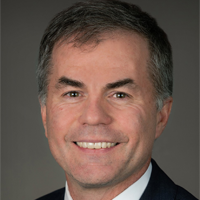
David Bem, CTO & VP Science and Technology, PPG (September 26, 2019)
"Our global research & development team at PPG has a true spirit of innovation and invention. It is important for manufacturers like PPG to look beyond current market needs, and develop coatings that will serve future customer needs – needs they may not even recognize yet.
For example, we see profound changes coming in the transportation industry with the future of mobility. With the ongoing development of self-driving and autonomous vehicles, PPG has a strong opportunity to enable and enhance the future of transportation through next-generation coatings, including cathode coatings for electric-vehicle batteries, coatings that help self-driving cars detect other vehicles and infrastructure around them and anti-fingerprint coatings for interior vehicle applications.
By anticipating these changes and having an organization that is constantly looking for new opportunities, PPG will contribute to the future of change."
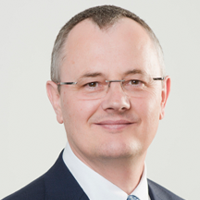
Nicolas Cudré-Mauroux, CTO, Solvay (November 21, 2019)
"Our mission is to create value by developing solutions for our customers. The technical competencies of our scientists are absolutely amazing. Focusing these competencies on the right projects requires marketing skills and, simply, the ability to ask the right questions and to listen to the answers from our customers. Great scientists who have the ability to do that and to connect with other people, scientist or not, are the real stars in our organization."
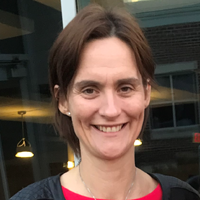
Charlotte Allerton, Head of Medicine Design, Pfizer (February 6, 2020)
"At Pfizer our primary stakeholders are the patients. Patients are waiting for breakthrough medicines. We hold this front and central to all the work that we do, and it brings an urgency and courage to our work that I highly value in our colleagues.
All scientists need to have integrity, resilience and tenacity to be successful. In science we have many setbacks, and I really value colleagues who are transparent about their learnings, pick themselves up after a failure, take a step back and work out a new route to the goal. We have to do this time and again in drug discovery, as continuous learning is part of our overall success.
At Pfizer, our inventions and breakthroughs come from working in diverse teams of colleagues. Being able to collaborate broadly, listen to others’ views, advocate for your own, cut through the complexity to a clear plan and build trust through acknowledging the contributions of others are all skills that I see as instrumental to success."
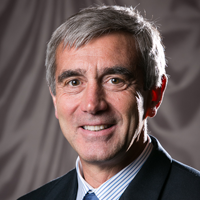
Philippe Knaub, Senior VIce President and Chief Technology Officer, FXI (February 20, 2020)
"Several non-technical skills are critical to the success of a scientist at FXI and I would argue in most modern research groups. The first one is team work and how a scientist can interact and integrate within a group. Any individual contributor will be sublimated when immersed in the right team and see his/her efforts increase in an exponential manner.
Hand in hand with teamwork, I value very highly individuals with great interpersonal skills. They not only excel within a team but also vertically and horizontally across the organization. They contribute to the energy of a group and are the catalyst that leads to excellence and excitement that make the researchers get up every day and look forward to coming to work and making a difference.
Classical leadership traits, like hard working and driving for results, can of course not be forgotten. One last skill I would like to highlight is persistence. One thing we all learn in R&D is that we more often fail than succeed and the researchers with a high “batting average” are usually the ones that take low risks and work on line extension projects only. Statistics don’t lie (or rarely do) and break-through projects have a much higher chance to fail than to succeed. And the ones that succeed have many disappointments and redirections along the way, and only succeed thanks to the persistence of the individuals that work on them. This trait of character is most efficient when associated with a touch of optimism: the people seeing the glass half full and always looking for the bottle to top it off."
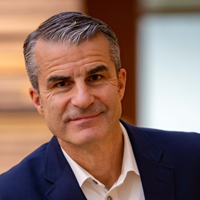
"Collaboration and communication. Most of the opportunities in front of us will require more and more interdisciplinary R&D work. We just talked about new innovative alternative protein solutions. A lot of people with different backgrounds, often based in different locations, have been involved to make it happen. From the chemistry of food ingredients, including what’s going on during cooking, to materials science to processing and engineering and so on. Collaborating seamlessly across a wide range of technical and scientific disciplines and finding a common language are critical components to success."
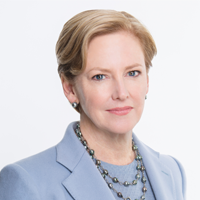
Ellen Kullman, President and Chief Executive Officer, Carbon (March 19, 2020)
"We have a world-class team at Carbon that includes scientists and engineers who aren’t just well-recognized in their fields, but who are curious about many fields and who."
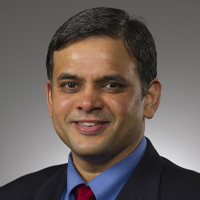
"I would have to say the combination of passion for great science and engineering, working collaboratively across teams and time zones, and perseverance that finds a way to solve seemingly intractable problems."

Bob Maughon, Executive Vice President, CTO and CSO, SABIC (April 30, 2020)
"There are three areas that I see as critical to advancement and impact:
Performance: The scientists that can collaborate, within their teams and across all functions, are the ones that can translate their technical acumen into business results – this is the difference between innovation and invention.
People: Scientists should be devoted to the development of the next generation of scientists, challenging, and supporting younger talents but as well taking ownership in enabling their success. True leadership is not demonstrated through individual achievement, but instead through inspiring, mobilizing, and enabling others.
Pipeline: Willingness to take risk and bring new ideas forward. All of our researchers have strong technical skills, but those researchers who are willing to speak out, take risks, champion new technologies, and inspire others to join them, are the ones that stand out.
The desired behaviors, expressed in the SABIC Leadership Way, of being a Talent Champion, a Collaboration Partner, an Innovation Pioneer, and an Excellence Driver, are very much aligned to these areas of focus."
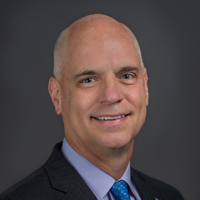
Tim Knavish, Executive Vice President, PPG (May 28, 2020)
"There are a few core strategies that I’m passionate about to drive a successful, engaged and diverse team. I believe in working hard to implement positivity, embracing change, maintaining high energy, trusting your people, and celebrating successes within our global teams.
One thing that I continue to impress upon individuals and teams within our organization is to be bold earlier, and don’t be afraid to take chances. It’s my advice to all PPG employees, regardless of where they are in their careers. Looking back, I wish my younger self received this advice.
I’m also a big believer in drawing motivation from the people around me and encouraging others to do the same. I like to win as a team, not as an individual – winning is cool when it’s collaborative. Finally, I’m a big believer in hiring the right talent for the right roles, and trusting them to lead with their expertise. I much prefer to lead alongside our talented people."
This article has been edited for length and clarity. The opinions expressed in this article are the author's own and do not necessarily reflect the view of their employer or the American Chemical Society.
Copyright 2022 American Chemical Society (All Rights Reserved)

